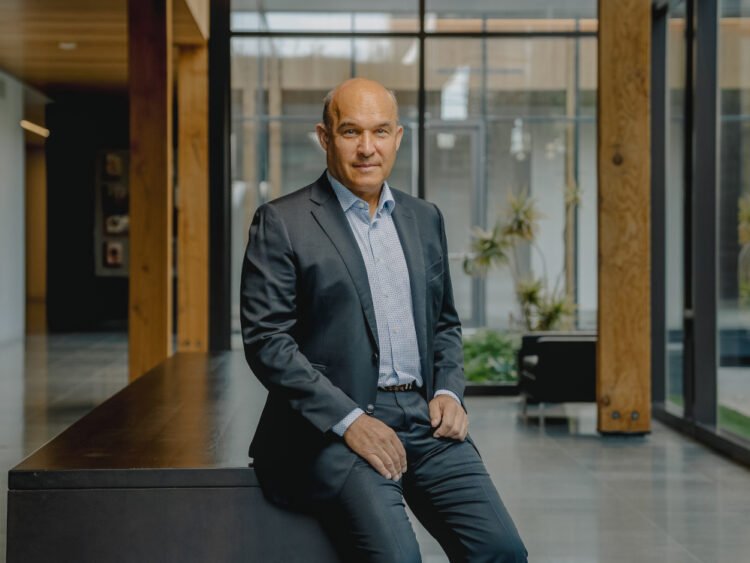Former Research In Motion chairman and CEO Jim Balsillie—best known for co-founding BlackBerry—has voiced concerns over Canada’s economic vulnerability amidst a looming trade war with the U.S., calling it “an issue of our own making.” Balsillie criticized Canada’s lack of preparedness, stating, “While they come prepared, we come sleepwalking.”
Canada’s Vulnerability: A Self-Inflicted Issue
In an interview with CTV Question Period, Balsillie described Canada’s precarious position as unprecedented among developed nations. “No other nation has allowed itself to become this vulnerable in so many critical areas of prosperity and security. These are self-inflicted wounds,” he said.
Balsillie’s comments come as President-elect Donald Trump prepares to take office, with plans to impose a sweeping 25% tariff on all Canadian imports as part of his initial executive orders. Trump, initially justifying the tariffs on grounds of border security and drug control, has shifted his rhetoric to frame tariffs as a tool for reducing the U.S. trade deficit with Canada.
Outdated Strategies in a Changing Economy
Balsillie argued that Canada has failed to adapt to the evolving global economy. “This isn’t the same trading economy as post-World War II,” he explained. “The game changed 30 years ago. Successful countries adjusted their strategies, while Canada doubled down on outdated approaches, leaving us in this vulnerable position.”
Canada’s long-standing productivity challenges exacerbate the issue. According to the Organisation for Economic Co-operation and Development (OECD), Canada’s per capita GDP growth is projected to rank last among OECD nations over the next 40 years. In 2023, Canada also recorded the worst decline in labor productivity among OECD countries, with a 1.8% drop.
Missed Warnings
Balsillie pointed to Trump’s first term as a missed opportunity for Canada to strengthen its position. He specifically referenced Jared Kushner, Trump’s former adviser and son-in-law, who praised the “sunset provision” in the Canada-United States-Mexico Agreement (CUSMA), allowing the deal to be reviewed every six years with a 16-year lifespan.
In a 2020 op-ed, Kushner emphasized the importance of maintaining U.S. leverage in trade relationships to prevent unfair practices. “Kushner warned us,” Balsillie noted, “and now we find ourselves exactly where he said we’d be.”
The Economic Stakes
The United States remains Canada’s largest trading partner, with bilateral trade totaling $1.3 trillion annually. Canada also serves as the top export market for 36 U.S. states. A 25% tariff, however, could severely impact Canada’s economy, potentially shrinking GDP by 2.6% and costing households an average of $1,900 per year, according to the Canadian Chamber of Commerce.
A Path Forward: Building Resilience
When asked how Canada can reduce its reliance on the U.S., Balsillie stressed that it’s not just about dependence but about responsibility. “A responsible nation would have built a house of bricks; instead, we built a house of sticks,” he remarked. “Now, the big bad wolf has arrived, and we’re scrambling to figure out what to do.”
Balsillie called for “new voices” and a fresh approach to policymaking, emphasizing the need to prioritize resilience over political distractions. “It’s about stopping the stupid,” he said. “We need meaningful economic discourse, or the erosion will continue.”
Betting on Innovation
Balsillie, a member of the Council of Canadian Innovators, recently helped launch the Canadian SHIELD Institute, an initiative aimed at fostering homegrown innovation. He donated $10 million to kickstart the project, expressing hope in the next generation. “The best time to plant a tree was 20 years ago; the second-best time is now,” he said. “I’ve met so many bright young minds who want to build a better country, and I’m betting on them.”
Conclusion
Balsillie’s critique is a stark reminder of Canada’s need to modernize its economic strategies and build resilience in a rapidly changing global landscape. As he put it, “The situation is very fixable—but only if we act now.”

 English
English



























































